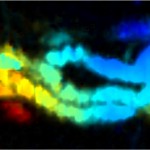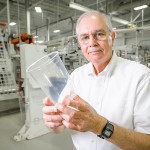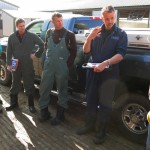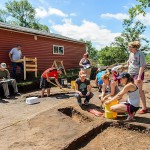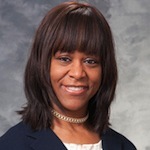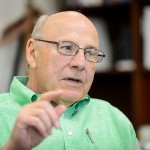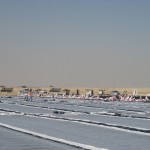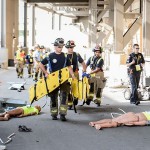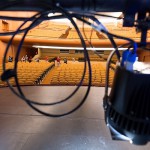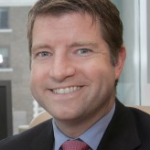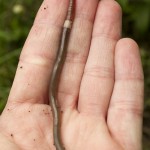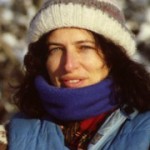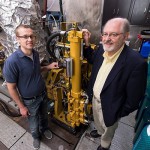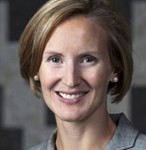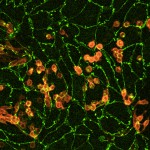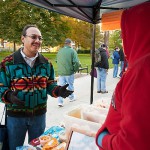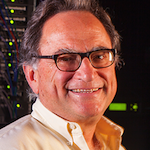Category Employee News
Wisconsin plastics industry has roots in modest, multitalented UW–Madison professor
“The Graduate” is a running joke in the plastics industry. In that 1967 Dustin Hoffman movie, a character famously — and accurately — summarized the future in one word: “Plastics.” The movie may have been influential, but Tom Mohs, founder of the Madison plastics manufacturer Placon, says he owes nothing to it. “I was already buying my second thermoforming machine when the movie came out,” says Mohs. “No, I owe it to Ron Daggett.”
Grant generates increased access, network training to Dairyland Initiative
The Dairyland Initiative - a UW School of Veterinary Medicine outreach program that works with farmers to optimize cow comfort, health and milk production - has received a renewal grant of $50,000 from the Dean Foods Foundation. The grant will allow the initiative to continue providing free access to its web-based resources for dairy farmers across the country and create a network of trained, certified consultants for planning and facilitating new welfare-friendly designs.
Eight honored by UW–Madison as Outstanding Women of Color
Eight winners of the 2014-15 Outstanding Women of Color awards, who are heavily involved in the campus as well as the Madison community through their work toward research and civic enrichment, have been announced by UW–Madison.
UW researchers create safe, resistant material to store waste
Storing industrial waste has never been a pretty job, and it's getting harder.
Something old, something new: Wisconsin Union Theater gets a makeover while maintaining historic feel
Renowned. Renewed. Restored. Those three words sum up the newly renovated Wisconsin Union Theater. While it won’t host its first official performance until Aug. 22-23 with “Kiss Me Kate,” a sneak peek inside reveals the building itself is quite the showstopper.
Hungry, invasive ‘crazy worm’ makes first appearance in Wisconsin
Wisconsin's newest invasive species has done its best to stay underground, but the voracious, numerous and mysterious Asian crazy worm has emerged for the first time in the state on the campus of the University of Wisconsin–Madison.
Computer scientist and devoted educator Susan B. Horwitz dies
Professor of Computer Sciences Susan B. Horwitz, a devoted educator and researcher noted for service to her discipline on both the university and national levels, died June 11 at Agrace HospiceCare in Fitchburg, Wisconsin. Horwitz, who was 59, had been battling stomach cancer.
Campus switchover to new IT network completed
The University of Wisconsin–Madison has transitioned to a new high-speed advanced research and education Internet network.
Best-ever efficiency points to clean, green gas-diesel engine
The one-cylinder test engine in the basement of a University of Wisconsin–Madison lab is connected to a life-support system of pipes, tubes, ducts and cables. You might think that the engine resembles a patient in intensive care, but in this case, the patient is not sick. Instead, the elaborate monitoring system shows that the engine can convert 59.5 percent of the chemical energy in its fuel into motion — significantly better than the 52 percent maximum in modern diesel truck engines.
UW-Madison ranks 4th for public administration research
The University of Wisconsin–Madison is ranked fourth worldwide for public administration research in a new study published by the Journal of Public Affairs Education.
Wisconsin scientists find genetic recipe to turn stem cells to blood
The ability to reliably and safely make in the laboratory all of the different types of cells in human blood is one key step closer to reality. Writing today (July 14, 2014) in the journal Nature Communications, a group led by University of Wisconsin–Madison stem cell researcher Igor Slukvin reports the discovery of two genetic programs responsible for taking blank-slate stem cells and turning them into both red and the array of white cells that make up human blood.
University Health Services selects new prevention director
Jeanette Kowalik has been named the new director of prevention services and campus health initiatives at University Health Services (UHS), the student health clinic of the University of Wisconsin–Madison.

